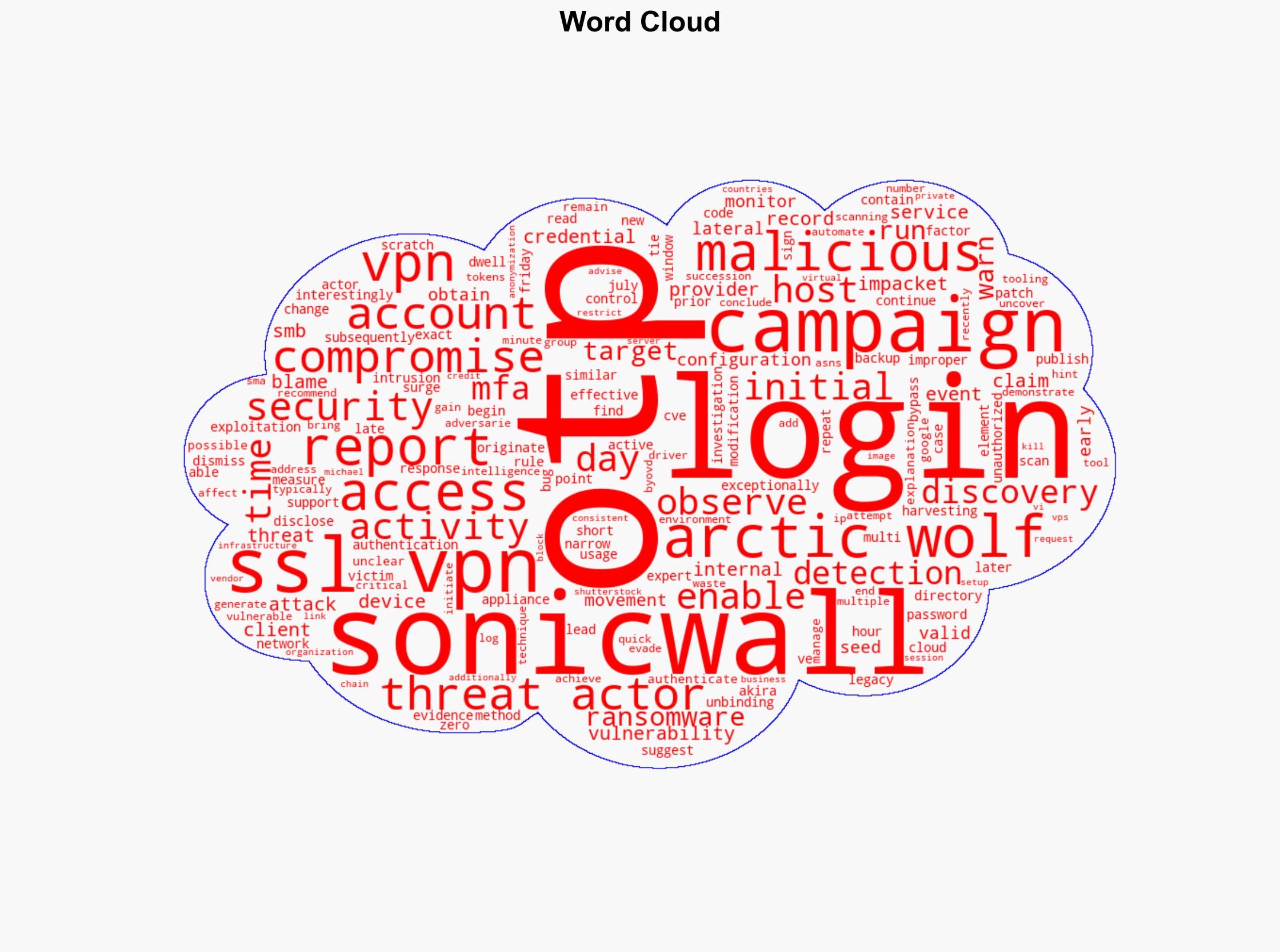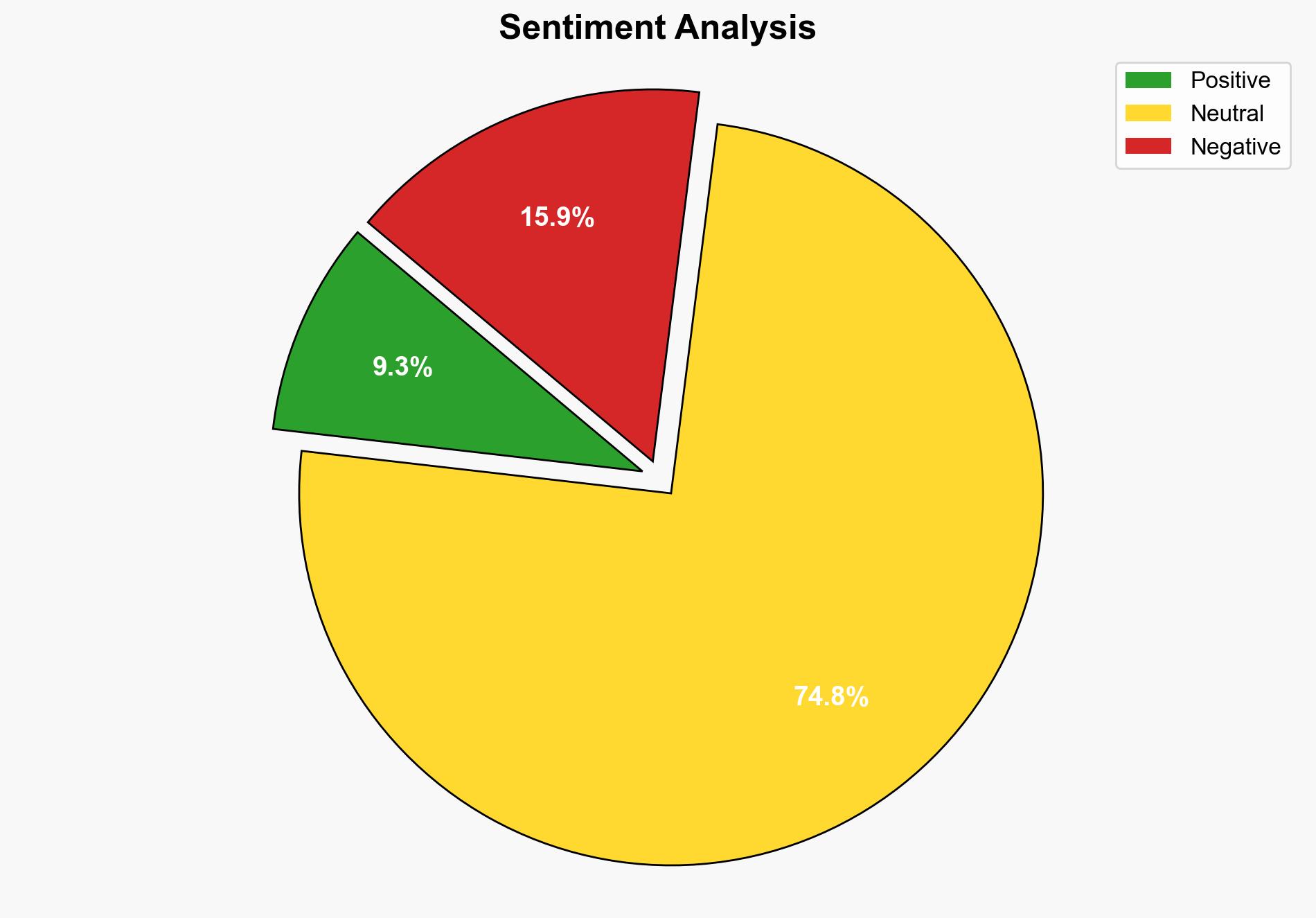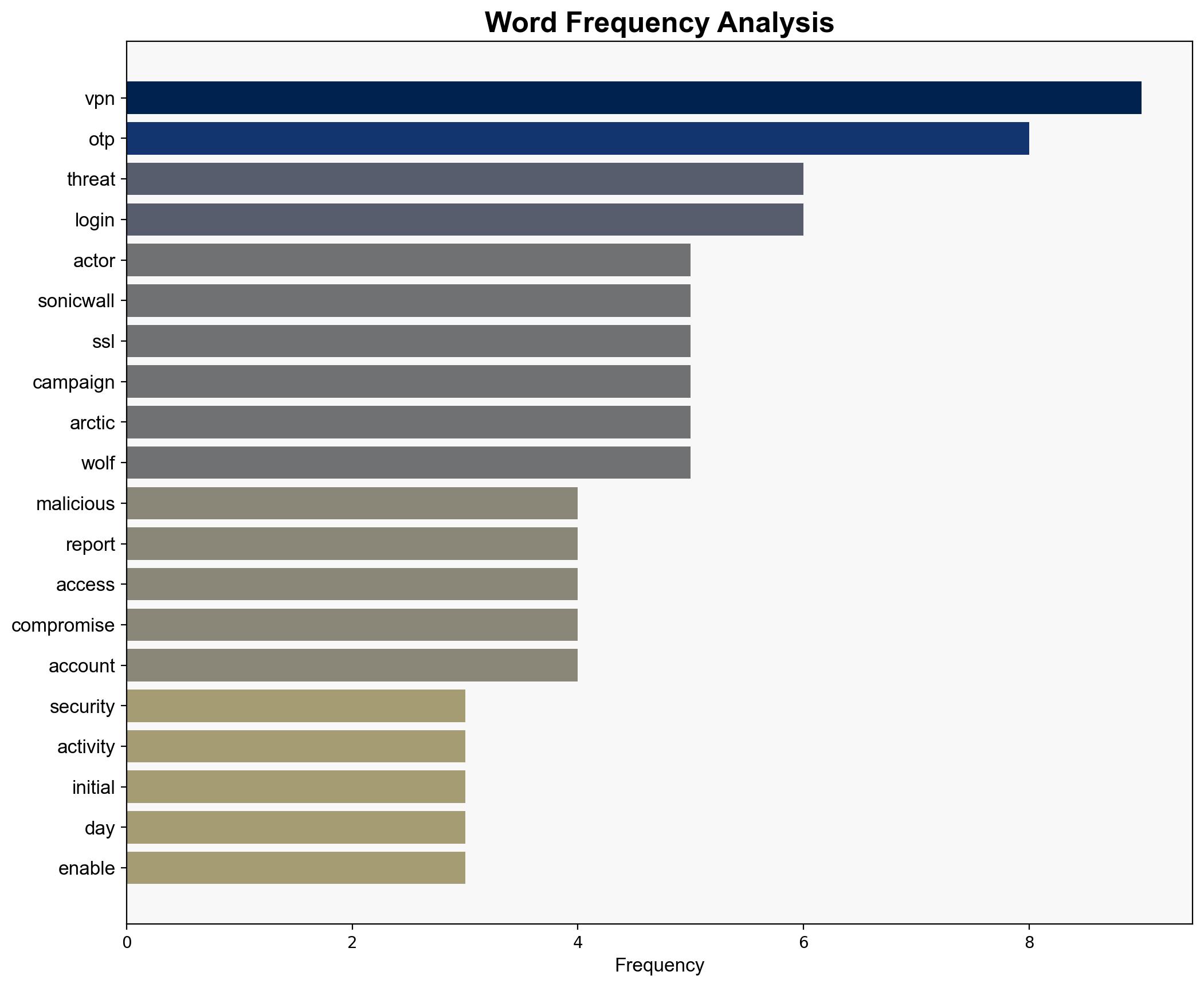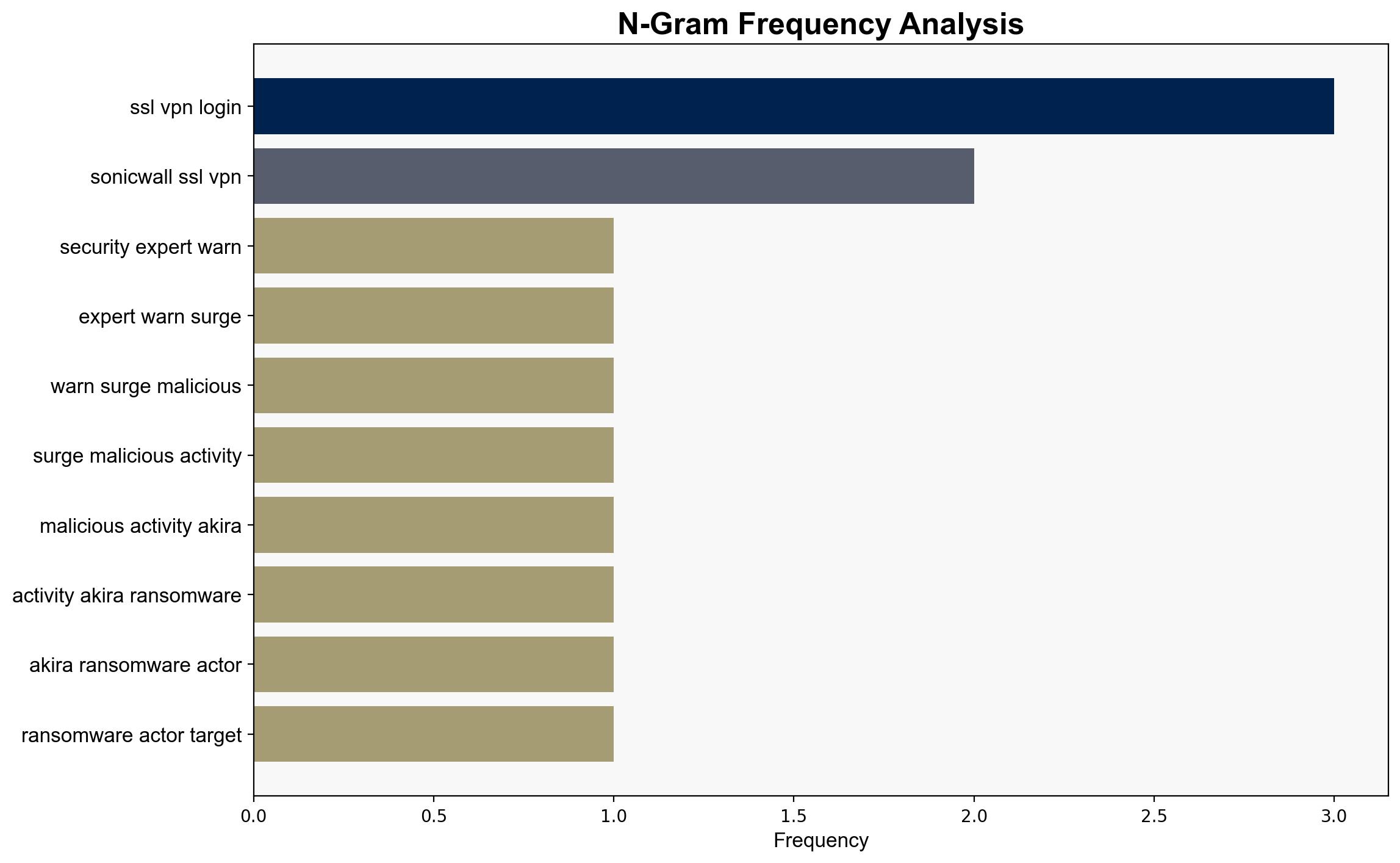SonicWall SSL VPN Attacks Escalate Bypassing MFA – Infosecurity Magazine
Published on: 2025-09-29
Intelligence Report: SonicWall SSL VPN Attacks Escalate Bypassing MFA – Infosecurity Magazine
1. BLUF (Bottom Line Up Front)
The SonicWall SSL VPN attacks represent a significant cybersecurity threat, with attackers bypassing multi-factor authentication (MFA) to gain unauthorized access. The most supported hypothesis suggests that attackers are exploiting improper access control vulnerabilities, potentially leveraging stolen OTP seeds. Confidence in this hypothesis is moderate due to the complexity and evolving nature of the threat. Immediate action is recommended to enhance monitoring and restrict access from suspicious sources.
2. Competing Hypotheses
Hypothesis 1: Attackers are exploiting a zero-day vulnerability in SonicWall SSL VPNs, allowing them to bypass MFA and gain unauthorized access.
Hypothesis 2: Attackers are exploiting improper access control vulnerabilities and using stolen OTP seeds to bypass MFA, as suggested by Arctic Wolf.
Using ACH 2.0, Hypothesis 2 is better supported due to the specific evidence of credential harvesting and OTP seed theft, as well as the dismissal of a zero-day vulnerability by initial reports.
3. Key Assumptions and Red Flags
– Assumption: The initial access is primarily due to improper access control rather than a zero-day vulnerability.
– Red Flag: The exact method of OTP seed acquisition remains unclear, indicating potential gaps in understanding the attack vector.
– Cognitive Bias: Confirmation bias may lead analysts to focus on the most recent reports, potentially overlooking earlier indicators.
– Missing Data: Lack of detailed technical analysis on how OTP seeds are obtained.
4. Implications and Strategic Risks
The attacks could lead to widespread data breaches, financial loss, and reputational damage for affected organizations. If attackers automate these techniques, the scale and frequency of attacks could increase, overwhelming current cybersecurity defenses. The geopolitical risk includes potential state-sponsored actors exploiting these vulnerabilities for espionage.
5. Recommendations and Outlook
- Enhance monitoring of SonicWall SSL VPN access logs and implement stricter access controls.
- Conduct a thorough review of MFA configurations and consider additional layers of security.
- Best Case: Rapid patch deployment and enhanced monitoring mitigate the threat effectively.
- Worst Case: Attackers develop more sophisticated methods, leading to a surge in successful breaches.
- Most Likely: Continued attacks with moderate success, requiring ongoing vigilance and adaptation of security measures.
6. Key Individuals and Entities
– Arctic Wolf (as the source of the latest report)
– Google Threat Intelligence Group (for uncovering related campaigns)
7. Thematic Tags
national security threats, cybersecurity, counter-terrorism, regional focus





